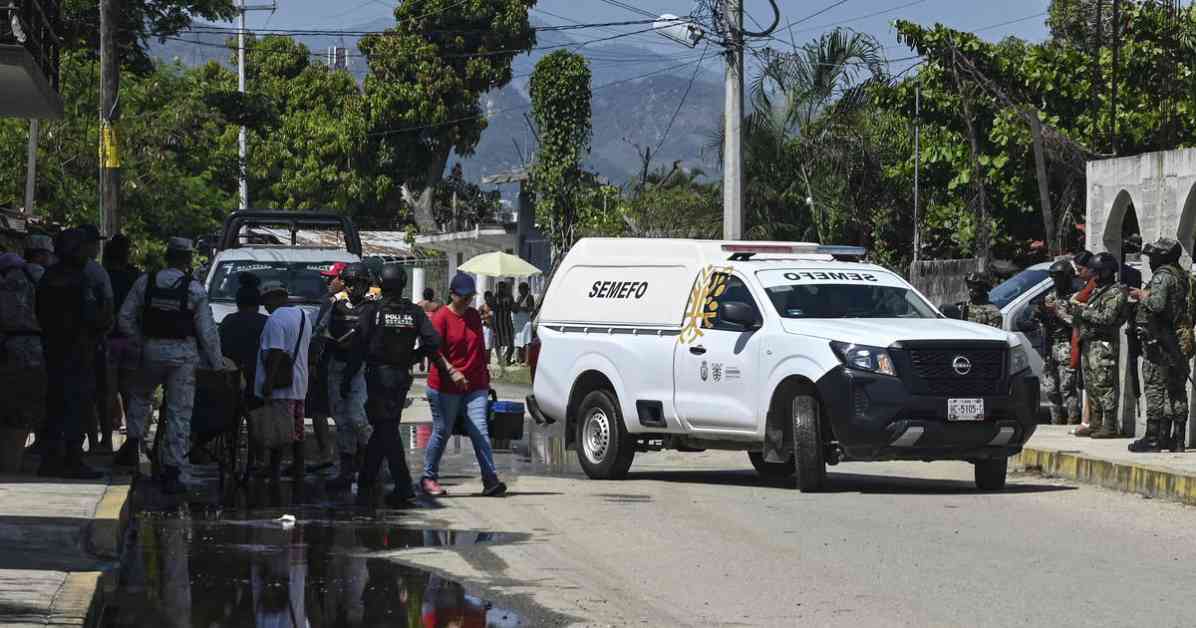In a recent tragic discovery in Mexico, police in the state of Guerrero found 11 bodies, including two minors, dumped by a highway in Chilpancingo, the state capital. This region has been plagued by drug cartel violence, with two rival gangs, the Tlacos and the Ardillos, vying for control of the area. The bodies were discovered after authorities received a tip about an abandoned pickup truck on the main thoroughfare.
The city of Chilpancingo has been a hotspot for gruesome drug gang violence, with the recent murder of the newly elected mayor, Alejandro Arcos, who was beheaded just a week after taking office. This brutal incident highlights the dangerous and volatile environment created by the ongoing cartel warfare in the region. Following Arcos’ murder, four other mayors requested federal protection, underscoring the widespread fear and instability caused by the escalating violence.
This tragic event adds to a series of violent incidents in the region, including the killing of five members of the same family by gunmen in Acapulco, also located in Guerrero state. The brazen nature of these attacks reflects the unprecedented levels of violence and lawlessness that have gripped the area, prompting urgent calls for intervention and security measures.
In response to the escalating violence, former President Andrés Manuel López Obrador’s “hugs, not bullets” strategy, which aimed to avoid direct confrontations with drug cartels, has come under scrutiny. The government’s reluctance to use force against the cartels has been questioned, especially as the situation deteriorates and civilian lives are put at risk. The new President, Claudia Sheinbaum, has hinted at a shift in policy towards a more assertive approach, signaling a departure from her predecessor’s non-confrontational stance.
The challenges posed by the entrenched drug cartels in Mexico require a comprehensive and strategic response that prioritizes the safety and security of the population. The recent wave of violence underscores the need for effective measures to combat organized crime and restore law and order in the region. As authorities grapple with the complex dynamics of cartel warfare, the protection of vulnerable communities and the prevention of further bloodshed must remain top priorities.






















